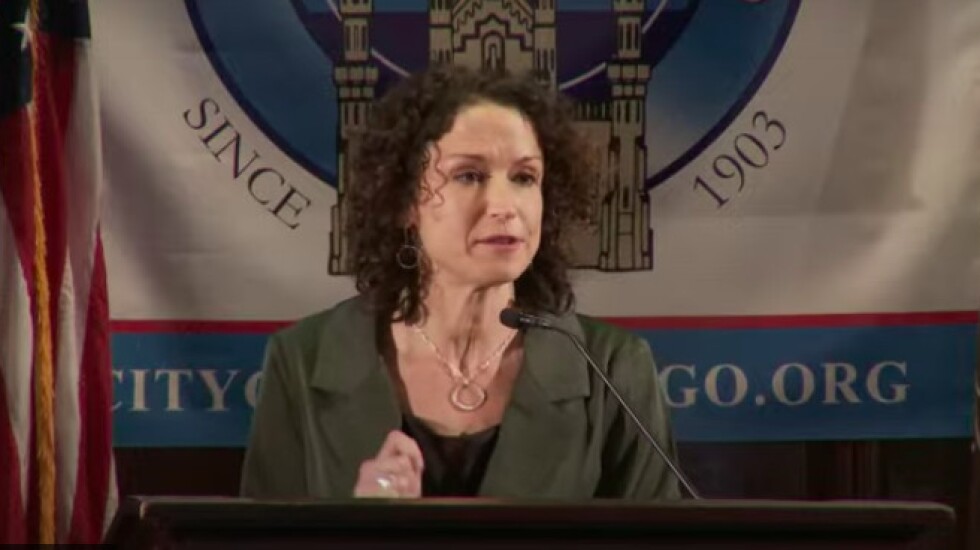
Chicago’s Department of Housing is pushing for the creation of affordable, permanent supportive housing for individuals recently released from incarceration, survivors of gender-based violence and those who are on the cusp of homelessness.
Marisa Novara, the city’s commissioner for the Department of Housing, made the announcement Tuesday during a speech at the City Club of Chicago that was also livestreamed. The department is starting the process of seeking proposals for the low-income housing tax credit program, which helps fund the development of affordable housing.
The draft calling for proposals is open to public comment until Feb. 28, and a public meeting is expected to take place Feb. 14. The window of time for proposals will start in June.
Novara told the crowd that individuals might not fit the definition of being unhoused if they are temporarily living with someone else or have recently been released from prison, which is why they are seeking to ensure there are affordable housing units created for this population.
“We know that at our basic level, homelessness is a housing problem,” Novara said. “Cities that have more affordable housing have less homelessness. We, as a department, have a growing sense of shared responsibility for these issues along with our partners at (the Department of Family and Support Services).”
The city’s annual count of the unhoused population in 2022 found that there were 3,875 people living in shelters or in encampments on the street, according to the city’s Department of Family and Support Services.
But the number of Chicago residents facing housing instability could be much higher. The Chicago Coalition for the Homeless released a report last year indicating that more than 65,000 people in Chicago experienced homelessness in 2020, which included those temporarily staying with others.
Novara said they are also encouraging developers to pitch projects near public transportation. They will also be looking for proposals for sites that have already been identified for affordable housing such as land in the Pilsen neighborhood near 18th and Peoria streets, and parcels of land in Woodlawn that are meant to preserve housing for the neighborhood.
The department is also making changes this year to try to reach more Black and Brown developers such as allowing a consultant to be part of the cost to help them navigate the tax credit system. Developers will also be required to use city agencies to solicit bids to reach more Black and Brown contractors, Novara said.
The changes and goals for this year’s proposals are part of the department’s aim to ensure more racial equity in affordable housing, she said.
“We take this approach because in this country, race neutral policies will never give us race neutral results,” Novara said. “What we know about structural racism is that simply letting things unfold is not neutral.”
The Department of Housing’s plan for proposals can be found at chicago.gov/QAP.
Elvia Malagón’s reporting on social justice and income inequality is made possible by a grant from the Chicago Community Trust.







